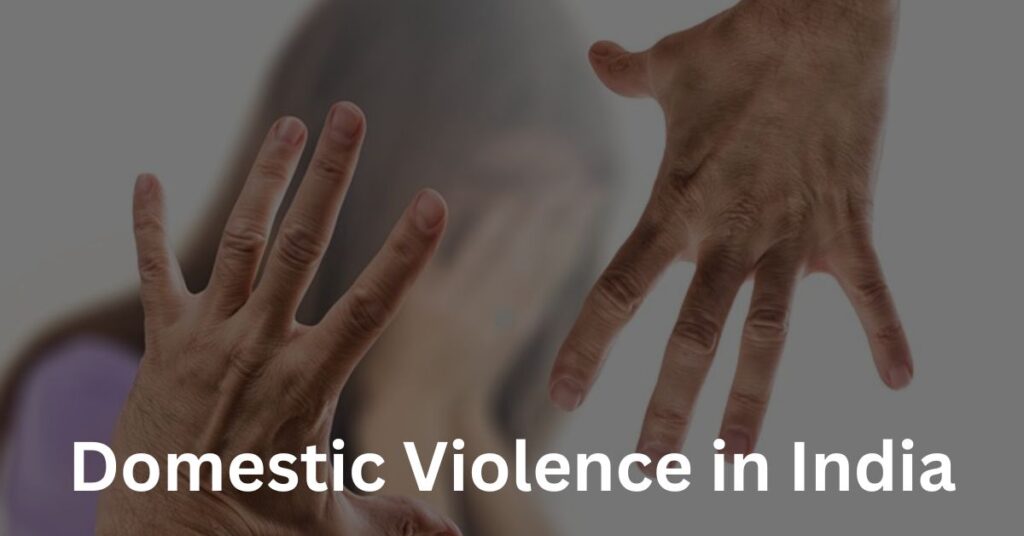Domestic violence in India is a prevalent issue that affects individuals and families across the nation. It is a form of abuse that occurs within intimate relationships, encompassing physical, emotional, sexual, and financial aspects. This article sheds light on the topic of domestic violence in India, exploring its causes, consequences, legal framework, and available resources. By understanding the scope of the problem and working towards its eradication, we can create a safer and more inclusive society for all.
Table of Contents
ToggleDomestic Violence in India: Unveiling the Reality
Defining Domestic Violence
Domestic violence refers to any act of violence or abuse committed by a person against their spouse, intimate partner, or family member within the confines of the home. In India, it includes physical assault, sexual harassment, emotional abuse, dowry-related violence, marital rape, and other forms of mistreatment.
Causes of Domestic Violence in India
Several factors contribute to the prevalence of domestic violence in India. Deep-rooted patriarchal norms, gender inequality, dowry demands, cultural and religious practices, economic disparities, and societal pressures contribute to the perpetuation of violence within households. These factors create an environment where abuse can thrive, causing significant harm to victims.
Consequences of Domestic Violence in India
Physical and Emotional Toll
Domestic violence inflicts severe physical and emotional trauma on its victims. Physical consequences include bruises, fractures, internal injuries, and in some cases, even death. The emotional toll is equally devastating, leading to low self-esteem, depression, anxiety, post-traumatic stress disorder (PTSD), and a constant state of fear and insecurity.
Impact on Children
Children exposed to domestic violence suffer long-lasting effects. Witnessing violence within the home can result in emotional and behavioral problems, impaired cognitive development, poor academic performance, and an increased likelihood of perpetuating the cycle of violence in their own lives.

Legal Framework: Protection and Support
Protection of Women from Domestic Violence Act
To address domestic violence, the government of India enacted the Protection of Women from Domestic Violence Act in 2005. This legislation provides comprehensive legal protection to women, recognizing their right to live free from violence. It offers remedies such as protection orders, residence orders, and monetary relief, along with the establishment of protection officers and shelters to assist victims.
Other Relevant Laws
In addition to the Protection of Women from Domestic Violence Act, other legal provisions in India, such as the Indian Penal Code and the Dowry Prohibition Act, aim to tackle specific aspects of domestic violence. These laws criminalize offenses such as assault, dowry harassment, and cruelty, emphasizing the need for legal recourse and accountability.
Combating Domestic Violence: Resources and Support
Helplines and Crisis Centers
In India, various helplines and crisis centers provide immediate support to victims of domestic violence. Organizations such as the National Domestic Violence Helpline (181) and local NGOs offer assistance, counseling, and guidance for individuals seeking help. These helplines ensure that victims have a safe space to report abuse and access critical information.
Shelters and Rehabilitation Programs
Shelters and rehabilitation programs play a vital role in supporting survivors of domestic violence. These facilities offer a temporary safe haven for victims, ensuring their physical and emotional well-being. Additionally, they provide counseling, legal aid, vocational training, and educational support to help survivors rebuild their lives.
Frequently Asked Questions (FAQs)
Q. What should I do if I am a victim of domestic violence in India?
If you are a victim of domestic violence, prioritize your safety. Reach out to a trusted friend, family member, or a helpline such as the National Domestic Violence Helpline (181). Seek legal assistance to understand your rights under the Protection of Women from Domestic Violence Act. Consider moving to a safe location, accessing support services, and developing a safety plan.
Q. Are men also victims of domestic violence in India?
While the majority of reported cases involve women as victims, men can also experience domestic violence in India. It is essential to acknowledge that domestic violence can affect individuals of all genders. Men experiencing abuse can seek help from helplines, support groups, or NGOs that provide assistance to male victims.
Q. What legal protections are available for victims of domestic violence in India?
The Protection of Women from Domestic Violence Act offers legal protections for victims in India. It includes provisions for obtaining protection orders, residence orders, and monetary relief. Familiarize yourself with the act and consult with legal experts or support organizations to understand and assert your rights.
Q. How can we create awareness about domestic violence in India?
Creating awareness about domestic violence is crucial to combatting the issue in India. Support local initiatives, NGOs, and campaigns that aim to raise awareness about domestic violence and its consequences. Engage in community discussions, spread information through social media, and educate others about the signs of abuse and available resources.
Q. What role can education play in preventing domestic violence in India?
Education plays a vital role in preventing domestic violence in India. By promoting gender equality, consent education, and healthy relationship dynamics, we can foster a culture of respect and empathy. Integrating comprehensive sexuality education within school curricula helps empower young individuals to recognize and reject violence.
Q. How can we support survivors of domestic violence in India?
There are various ways to support survivors of domestic violence in India. Offer a non-judgmental listening ear, provide information about helplines and support services, and encourage them to seek professional help. Respect their decisions and choices, and help create a safe and supportive environment where they can heal and rebuild their lives.
Conclusion
Domestic violence in India is a deeply entrenched problem that requires collective efforts to address. By understanding its causes, consequences, and the legal framework in place, we can work towards eradicating this silent epidemic. Supporting survivors, raising awareness, and fostering a culture of respect and equality are crucial steps in creating a safer and more inclusive society for all.


